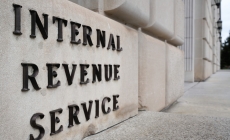-
IRS Changes Rules for Taxpayers in One State - May 17, 2024
-
A portion of Mulholland Drive, damaged by mudslides in winter storms, reopens - May 26, 2024
-
‘Maybe You Don’t Want to Win’ - May 26, 2024
-
Donald Trump Putting Law Enforcement in Danger: Attorney - May 26, 2024
-
Avoid the waters of these 5 L.A. County beaches this holiday weekend, public health officials say - May 26, 2024
-
Bawdy Comedy ‘Anora’ Wins Palme d’Or at Cannes Film Festival - May 26, 2024
-
Map Shows Heat Wave Zone Spread Into Five New States - May 26, 2024
-
Azusa police arrest suspected slingshot-wielding vandal - May 25, 2024
-
Donald Trump Hammers Judge Ahead of Jury Instructions - May 25, 2024
-
Sometimes U.S. and U.K. Politics Seem in Lock Step. Not This Year. - May 25, 2024
IRS Changes Rules for Taxpayers in One State
The Internal Revenue Service (IRS) said on Thursday that it will extend the tax filing period period for residents and companies in Ohio who were affected by tornadoes that hit the area in March.
Those impacted have until September 3 to complete their taxes and submit them to the agency, the IRS said in a statement.
“These taxpayers now have until Sept. 3, 2024, to file various federal individual and business tax returns and make tax payments,” the agency said.
Residents of specific areas that were deemed to be impacted by weather-related disruptions from the Federal Emergency Management Agency (FEMA) will benefit from the relief.
“This means that individuals and households that reside or have a business in Auglaize, Crawford, Darke, Delaware, Hancock, Licking, Logan, Mercer, Miami, Richland and Union counties qualify for tax relief,” the IRS said. “The same relief will be available to any other counties added later to the disaster area.”

J. David Ake/Getty Images
The extended period to the new September deadline will apply to the following groups, according to the tax agency:
- Individual income tax returns and payments normally due on April 15, 2024.
- 2023 contributions to [Individual Retirement Arrangements]and health savings accounts for eligible taxpayers.
- Quarterly estimated income tax payments normally due on April 15 and June 17, 2024.
- Quarterly payroll and excise tax returns normally due on April 30, 2024, and July 31, 2024.
- Calendar-year partnership and S corporation returns normally due on March 15, 2024.
- Calendar-year corporation and fiduciary returns and payments normally due on April 15, 2024.
- Calendar-year tax-exempt organization returns normally due on May 15, 2024.
“Penalties for failing to make payroll and excise tax deposits due on or after March 14, 2024, and before March 29, 2024, will be abated as long as the deposits were made by March 29, 2024,” the IRS added.
The agency said for those households that had moved to the impacted area after they had filed their tax returns there could be avenues to mitigate against any possible penalties.
“It is possible an affected taxpayer may not have an IRS address of record located in the disaster area, for example, because they moved to the disaster area after filing their return,” the agency said. “In these unique circumstances, the affected taxpayer could receive a late filing or late payment penalty notice from the IRS for the postponement period. The taxpayer should call the number on the notice to have the penalty abated.”
The IRS also suggested that some taxpayers who may not be residents of the affected areas but their records exist in those locations can also get relief.
“The IRS will work with any taxpayer who lives outside the disaster area but whose records necessary to meet a deadline occurring during the postponement period are located in the affected area,” the agency said. “This also includes workers assisting the relief activities who are affiliated with a recognized government or philanthropic organization.”
Uncommon Knowledge
Newsweek is committed to challenging conventional wisdom and finding connections in the search for common ground.
Newsweek is committed to challenging conventional wisdom and finding connections in the search for common ground.
Source link
































